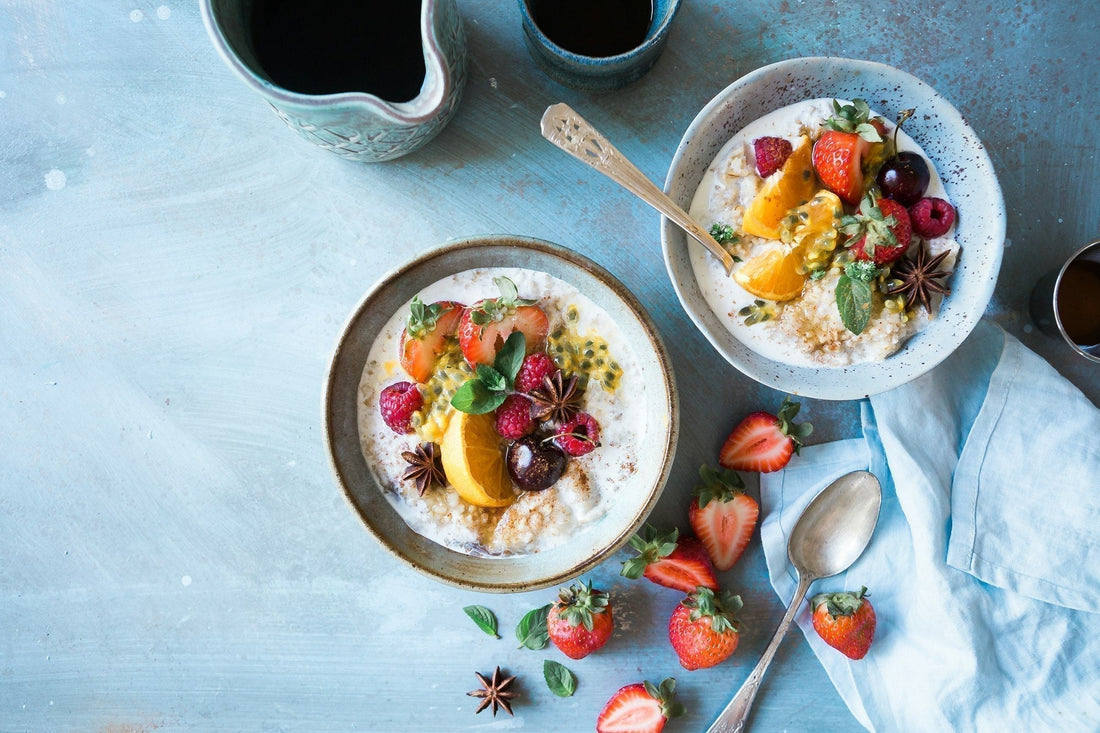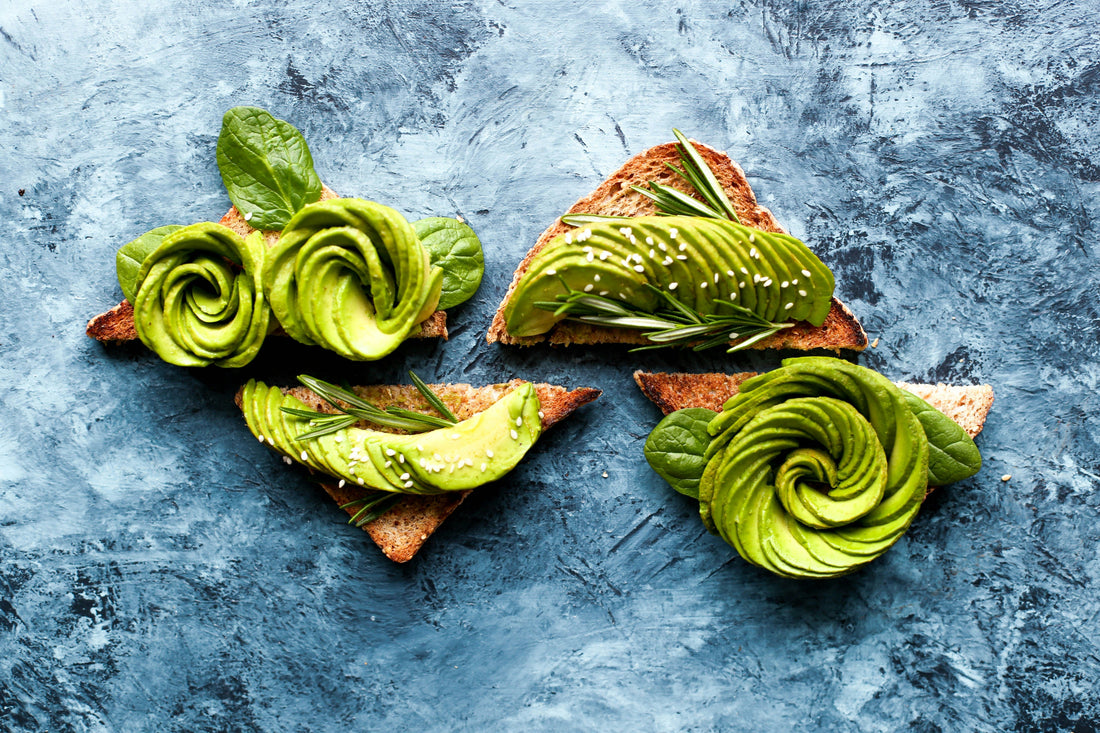TL;DR: Biotin (vitamin B7) supports keratin production, which is essential for healthy hair, skin, and nails. While deficiency can cause hair thinning, biotin supplements only show clear benefits in people who are deficient. Most Australians can meet their biotin needs through food such as eggs, almonds, and salmon.
Does Biotin Actually Help with Hair Growth?
If you’ve searched for ways to combat hair loss, you’ve likely seen biotin recommended. But does it really promote hair growth? Let’s explore its role, benefits, and when supplementation might help.
What is Biotin?
Biotin, also known as vitamin B7, is a water-soluble B-vitamin that helps convert carbohydrates, fats, and proteins into energy. Because it isn’t stored in large amounts, it must be consumed regularly through diet or supplements.
It also contributes to:
- Healthy skin, hair, and nails
- Nervous system function
- Normal metabolism
According to the National Health and Medical Research Council (NHMRC), biotin is an essential nutrient for maintaining overall metabolic and structural health.
How Biotin Supports Hair Health
Biotin contributes to keratin production, the structural protein forming hair, skin, and nails. Its benefits include:
|
Function |
What It Does |
Why It Matters |
|
Strengthens Hair |
Enhances texture and reduces brittleness |
Supports stronger strands |
|
Supports Keratin Synthesis |
Helps produce key hair proteins |
Promotes thicker, healthier hair |
|
Addresses Deficiency |
Corrects low biotin levels that cause thinning |
Restores normal growth and shine |
While biotin supports hair health, it's important to note that its effectiveness in promoting hair growth is most evident in individuals who are deficient in the vitamin.
How Much Biotin Do You Need?
|
Group |
Adequate Intake (AI) per day* |
|
Adult Men |
30 mcg |
|
Adult Women |
25 mcg |
|
Pregnancy |
30 mcg |
|
Breastfeeding |
35 mcg |
*(Source: NHMRC Nutrient Reference Values)
Most Australians consume 40–60 mcg daily, exceeding these needs naturally.
Who Is at Risk of Biotin Deficiency?
While deficiency is rare, risk increases with:
- Chronic alcohol use (reduces absorption)
- Pregnancy (lower circulating levels)
- Certain medications (antibiotics, anticonvulsants)
- Digestive disorders (like inflammatory bowel disease)
- Smoking (increases biotin breakdown)
A 2023 Nutrients study found that biotin deficiency can disrupt gut health and increase inflammation, reinforcing the importance of balanced nutrition.
Natural Food Sources of Biotin
|
Food |
Approx. Biotin (mcg per serve) |
|
Cooked egg |
10 |
|
½ cup canned salmon |
5 |
|
¼ cup sunflower seeds |
2.6 |
|
1 medium sweet potato |
2.5 |
|
Small handful almonds |
1.5 |
Eating a variety of these foods supports biotin intake and general well-being.
What Does the Research Say?
Research consistently shows biotin supplementation improves hair growth only when deficiency is present.
- A 2017 review in Skin Appendage Disorders found improved hair and nail growth in people with low biotin levels
- However, studies on healthy individuals show little to no benefit.
- Excess biotin can interfere with some laboratory blood tests, so always discuss supplementation with your healthcare provider.
FAQs
How long does it take to see results?
If you are deficient, visible improvements may take 2–4 months.
Can you take too much biotin?
Biotin is water-soluble, which means your body clears what it does not need. For most people, even higher intakes are generally considered safe. However, taking large doses unnecessarily is not recommended. If you think you might need a supplement, it is always best to chat with a health professional so they can guide you based on your individual needs.
Final Thoughts
Biotin supports keratin production and strengthens hair, but its true benefits are most noticeable in those with a deficiency. A diet rich in eggs, nuts, salmon, and sweet potatoes usually provides sufficient amounts.
If you’re experiencing hair thinning, address the root cause rather than self-prescribing supplements.
Vitable offers personalised vitamin subscriptions designed to support your unique needs. Take the quiz to discover your personalised combination of vitamins and minerals.
Always read the label. Follow the directions for use. If symptoms persist, talk to your health professional. Vitamin and/or mineral supplements should not replace a balanced diet.
References
- National Health and Medical Research Council. (n.d.). Nutrient Reference Values for Australia and New Zealand: Biotin. Eat For Health. Retrieved December 6, 2024, from https://www.eatforhealth.gov.au/nutrient-reference-values/nutrients/biotin
- Office of Dietary Supplements. (2017, December 8). Biotin - Health Professional Fact Sheet. National Institutes of Health. Retrieved December 6, 2024, from https://ods.od.nih.gov/factsheets/Biotin-HealthProfessional/
- Guo, Emily L, and Rajani Katta. “Diet and hair loss: effects of nutrient deficiency and supplement use.” Dermatology practical & conceptual vol. 7,1 1-10. 31 Jan. 2017, doi:10.5826/dpc.0701a01
- Yelich A, Jenkins H, Holt S, Miller R. Biotin for Hair Loss: Teasing Out the Evidence. J Clin Aesthet Dermatol. 2024 Aug;17(8):56-61. PMID: 39148962; PMCID: PMC11324195.
- Patel DP, Swink SM, Castelo-Soccio L. A Review of the Use of Biotin for Hair Loss. Skin Appendage Disord. 2017;3(3):166-169. doi:10.1159/000462981
- Yang JC, Jacobs JP, Hwang M, Sabui S, Liang F, Said HM, Skupsky J. Biotin Deficiency Induces Intestinal Dysbiosis Associated with an Inflammatory Bowel Disease-like Phenotype. Nutrients. 2023 Jan 4;15(2):264. doi: 10.3390/nu15020264







